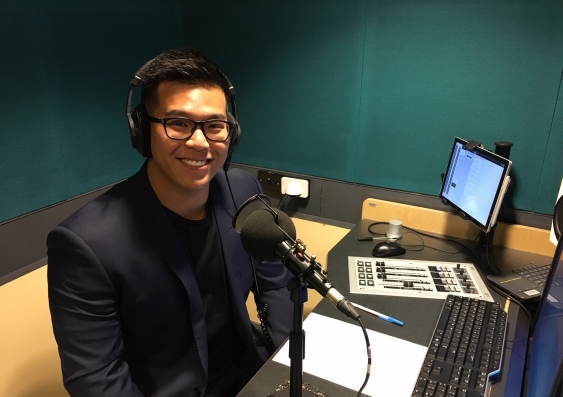Overcoming stigma on World Mental Health Day
This World Mental Health Day, UNSW is highlighting the ways its researchers and students are working towards improving mental health for people all over the world.
This World Mental Health Day, UNSW is highlighting the ways its researchers and students are working towards improving mental health for people all over the world.

Sherry Landow
News & Content Producer
(02) 9065 4039
s.landow@unsw.edu.au
, held annually on 10 October, is an opportunity to bring conversations about mental health to the foreground.
Itās also a chance to highlight the work and achievements of those working to improve community mental health, whether it be through improving access to professional support, reducing stigma surrounding mental health, or researching implications of poor mental health.
Here are some of the many mental health research highlights involving UNSW Sydney academics and students.

Photo: Shutterstock
More than a quarter of high school students have experienced signs ĢżofĢżclinical depression and other psychiatric conditions, with the type of mood disorder influencing studentsā risk of suicide and self-harm.
The UNSW study ā published in theĢżĢżā offers a concerning insight into the lack of mental health support adolescents are accessing, with only 20 to 25% of students with a suggested psychiatric condition saying they had sought help from a general practitioner or a mental health professional.
The anonymous survey, led by UNSW Scientia Psychiatry Professor and Black Dog Institute Founder Gordon Parker AO, asked over 1500 year 11 and 12 Sydney private school students questions relating to mood and anxiety in recent periods and over their lifetime, and collected details about their history of self-harm behaviours, thoughts of suicide and history of being bullied.
Find out more:Ģż
Professor Parker AO is a finalist in .

Before the 'Tell Your Story' program, there was no intervention to specifically reduce mental health stigma in refugees. Image: Shutterstock
UNSW Sydney scientists, in partnership with Settlement Services International and the Black Dog Institute, have developed an online intervention to help traumatised refugee men overcome the stigma associated with post-traumatic stress disorder (PTSD).Ģż
āThe prevalence of PTSD in people from a refugee background is five times higher than in Australiaās general population,ā says study and trial lead Associate Professor Angela Nickerson from the Refugee Trauma and Recovery Program at UNSW Scienceās School of Psychology.
āBefore our project, there was no intervention to specifically reduce mental health stigma in refugees ā āTell Your Storyā (TYS) is the first program of its kind, and itās so exciting to see the results of it after years of work.ā
As part of the study, 103 refugee men with PTSD symptoms from Arabic, Farsi or Tamil-speaking background were randomly assigned to either receive the TYS intervention, or to participate in a control group of men who were put on a wait list.
Men who participated in the trial went on to seek more help than those in the control group, and they experienced less self-stigma compared to the control group.
Find out more:

Image: Shutterstock
Survivors of sexual assault who encounter negative responses from family members when they disclose their abuse are at higher risk of poor mental health later in life, a study by UNSW medical researchers has shown.
It is hoped that the study ā and subsequent research ā can help better inform mental health interventions and strategies to avert the longer-term emotional difficulties and risks that abuse survivors encounter later in life.
āThere is ample evidence that sexual abuse is widespread among women ā for example, we know that nearly 1 in 5 adult women globally, and approximately 20% of Australian women report exposure to sexual abuse in childhood,ā says study lead author Associate Professor Susan Rees from UNSW Medicineās School of Psychiatry.
āThe association between exposure to sexual abuse and a wide range of common mental disorders and adverse psychosocial outcomes is also well established."
Find out more:

PhD student Sandersan Onie at ABC Radio. Photo: David Fisher
UNSW Psychology PhD student Sandersan āSandyā Onie is working on removing the stigma surrounding mental health in his home of Indonesia.Ģż
As recently as 2014, families in rural areas of Indonesia were ātreatingā loved ones with depression, anxiety or other mental health conditions by locking them in purpose-built metal cages in their homes. In some places, itās still happening now. While this doesnāt happen as often in bigger cities, it illustrates the rampant underlying stigma and attitude towards mental health in Indonesia.
āFeelings and cultures are so diverse, from one region to another. We need to understand how psychopathology looks in an Indonesian context to better understand how to treat it,ā says Sandy.
As part of his research in the School of Psychologyās Motivated Attention and Perception Lab, Sandy recently launched āWhat I Wish They Knewā: a campaign and website where people from across Indonesia and anywhere else in the world can share their lived experience of mental health. Sandy and his collaborators hope to give a voice to those who may be too afraid to speak out.ĢżĢż
Find out more:

Researchers will be interested in whether a person's performance in a series of games played in a smartphone app is affected by their mood. Picture: Shutterstock
Researchers from UNSW Sydney and University College London (UCL) are hoping that a newly launched app that tracks an individualās moods and emotions could lead to better management of mental health disorders such as anxiety and depression.
The app will not only allow users to gauge their mood and how it affects their performance, but will provide vital data on the links between mood regulation and brain functioning.
°Õ³ó±šĢżĢżapp follows on from research conducted in the lab byĢżDr Susanne SchweizerĢżfrom UNSWās School of Psychology. Along with her UCL colleagues, Dr Schweizer showed that performance in a series of memory and attention-based tasks that were influenced by emotional stimuli can reveal a personās capacity for psychological resilience.
āIn the lab, performance on these types of tasks differentiates between individuals who are psychologically healthy and those with a wide range of mental health problems including disorders such as depression, anxiety and schizophrenia,ā she says.
āWhat weāre really interested in is to confirm that what weāve observed in the lab will also be replicated in the world at large as people play the games in this app.ā
Find out more:
For Youth:
: 1800 551 800
: 1800 650 890
: au.reachout.com
Ģż
For Adults:
Ģż13 11 14
1300 22 46 36.
Ģż1300 659 467
Ģż1300 789 978
Ģż